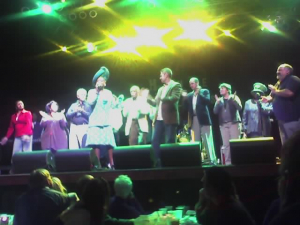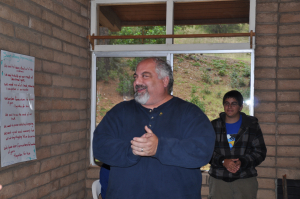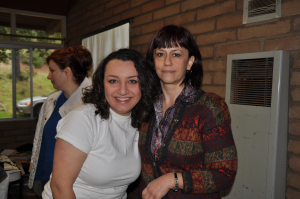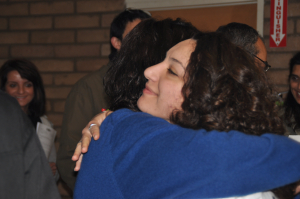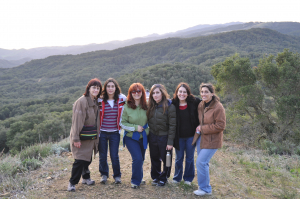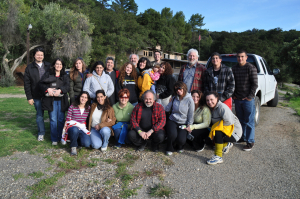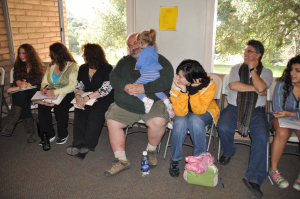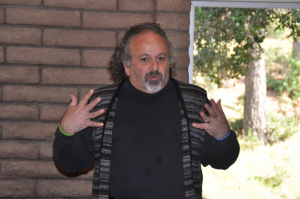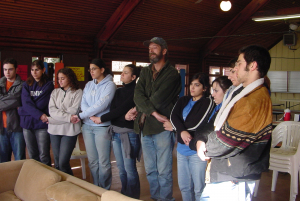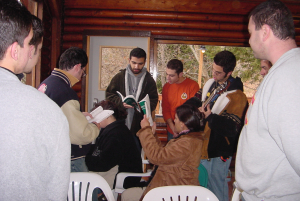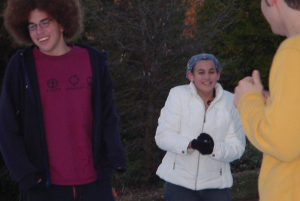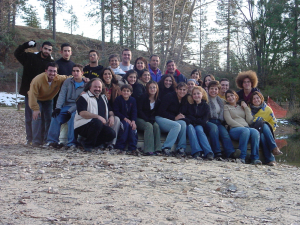Mindset Change-2
Untold stories from the Armenian Church Youth Ministries Center
Today’s Episode: Changing Mindset 2
As we wind down this series “It was 20 years ago today” before the feast of Ascension (40 days after Easter), we’re taking a look at two of the biggest miracles we experienced changing the mindset of the community, and opening the doors for what is possible in and through the Armenian Church. Yesterday we looked at forgiveness within the community, today we look at the community itself. Both of these mindset changes have to do with the acceptance of reality.
Armenians rightfully take pride in the historic reality that Armenia was the first Christian nation. The operative word for us today is was. The first Christian nation belongs to the 4th Century, while the decedents of that nations, well, ideally, belong to the 21st century, removed by over 1700 years since that nation-changing event. To take claim to that Light of Life that Illuminated Armenia in 301 A.D., the connection has to be justified. The Jews of Jesus’ time tried to justify themselves before him by claiming to be heirs of Abraham, to which Christ responds, “And do not think you can say to yourselves, ‘We have Abraham as our father.’ I tell you that out of these stones God can raise up children for Abraham.”
We can hear the same voice asking Armenians, “And you not suppose that God can create the children of the Armenian nation out of these stones?” In other words, the past is gone, what are you doing to justify your position as children/heirs of the first Christian nation? The challenge we had before ourselves was to change the mindset of pride to a mindset of responsibility.
In 2005, when His Holiness Karekin II, the Catholicos of All Armenians made his pontifical visit to the United States, two of us from the Armenian Church Youth Ministry Center were asked to participate in a symposium held at the University of Southern California. Dr. Dekmejian spoke about the a plan for growth in the Armenian Church utilizing basic ideas of faith-building. My topic was “Globalization and the Armenian Church.” At the end of the conference, His Holiness took both of these plans back to Armenia as a game-plan for the Armenian Church in the 21st century. The idea was simple: we in the Armenian Church have much to offer the world in terms of the being the oldest Christian tradition on earth. At the same time, we have a lot to learn from communities that have adapted to the realities of the day.
One of those communities we looked at was the African American community in the United States. Often we Armenians are compared to the Jewish community primarily because of the connection of Genocide. But a comparison to the African American community has many more parallels. Unlike the Jews who were in Europe leading to the Holocaust, Armenians were residing in their historic homeland. The Nuremberg Trials were held in the 1940s, an international war crimes tribunal which revealed the true extent of German atrocities and held some of the most prominent Nazis accountable for their crimes. Germany accepted responsibility and reparations were made.
Through the years I had read and heard (in recordings) the great Civil Rights leader the Rev. Dr. Martin Luther King, Jr. His words moved and inspired me. In particular his “Letter from Birmingham Jail,” I found to be one of the most eloquent pieces of Christian writing, in any age, and one that reverberated in my heart. It spoke to the plight of the Armenian people and Armenian Church, as much as it did to that of the African American population and the Black church. I must say here, that King would go out of his way to emphasize that in light of all of the accolades, degrees and titles that could be used to identify him, first and foremost he was a minister of the Gospel of Jesus Christ.
Beginning on the first year at the Youth Ministries Center and continuing every year thereafter, we organized Martin Luther King “Retreats” where we would take away groups, mostly young in age/young at heart, to study the works of King, side-by-side to the writings and teachings of Armenian Church leaders such as Khirimian Hayrig, St. Nersess Shnorhali, St. Gregory of Narek and St. Gregory of Datev. We studied and then challenged participants to walk the path forged by Jesus and followed by these most incredible leaders and students of Christianity.
The mindset began to change, ever so slowly, but it did. The majority of our congregation at the church and center were immigrants. They started understanding the huge responsibility they had as children of the Armenian Church. They were hurting from their experiences and were empathetic to others in pain. They would attend rallies in support of Domestic Violence, walking hand-in-hand with survivors, in marches organized on the streets of Glendale and Burbank. They produced a video “Greetings of Hope” as a message to refugees of the Genocide in Darfur. They extended themselves to the poor and the needy. The miracle happened, they saw themselves as representatives of the Resurrection, not as victims of a crucifixion.
The waves of change are not easy to land. There was opposition to these altruistic efforts from Armenian American leadership who could not see beyond their noses. But we were persistent. I used every opportunity that I could to get the message out. From the pulpit, of course, but I also spoke on college campuses, at High School Baccalaureates, at retreats and seminar, and on television and radio interviews. There is a song that the freedom fighters during the Armenian Genocide would sing, Միայն զէնքով կայ հայոց փրկութիւն = Armenian’s salvation is only through the gun. I had the audacity to quote this in interviews and then add that the greatest gun or weapon that we have is our capacity to love and to give. Interviewers didn’t know whether to censor me or pretend I didn’t say it so that it could be dismissed. But we continued. And then we rolled out our greatest weapon, the electronic forum = Epostle dot net.
Join me tomorrow as we tie up “20 Years ago today” with the miracle of apostolic evangelism for an electronic world.
Cover: At the House of Blues – Mike Geragos leads the singing at the IHS MLK Retreat, circa 2010
Below: Pictures from various MLK Retreats
